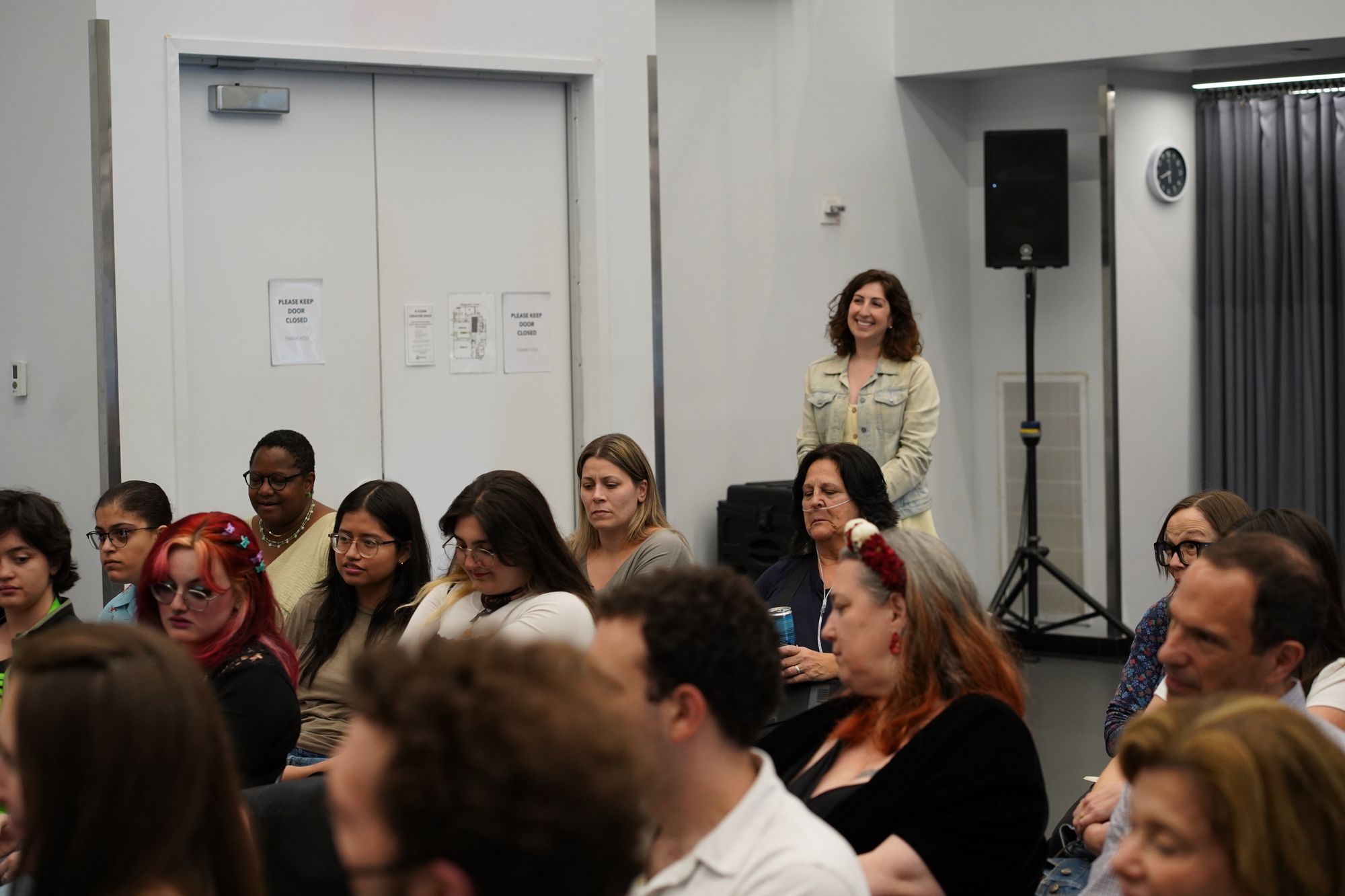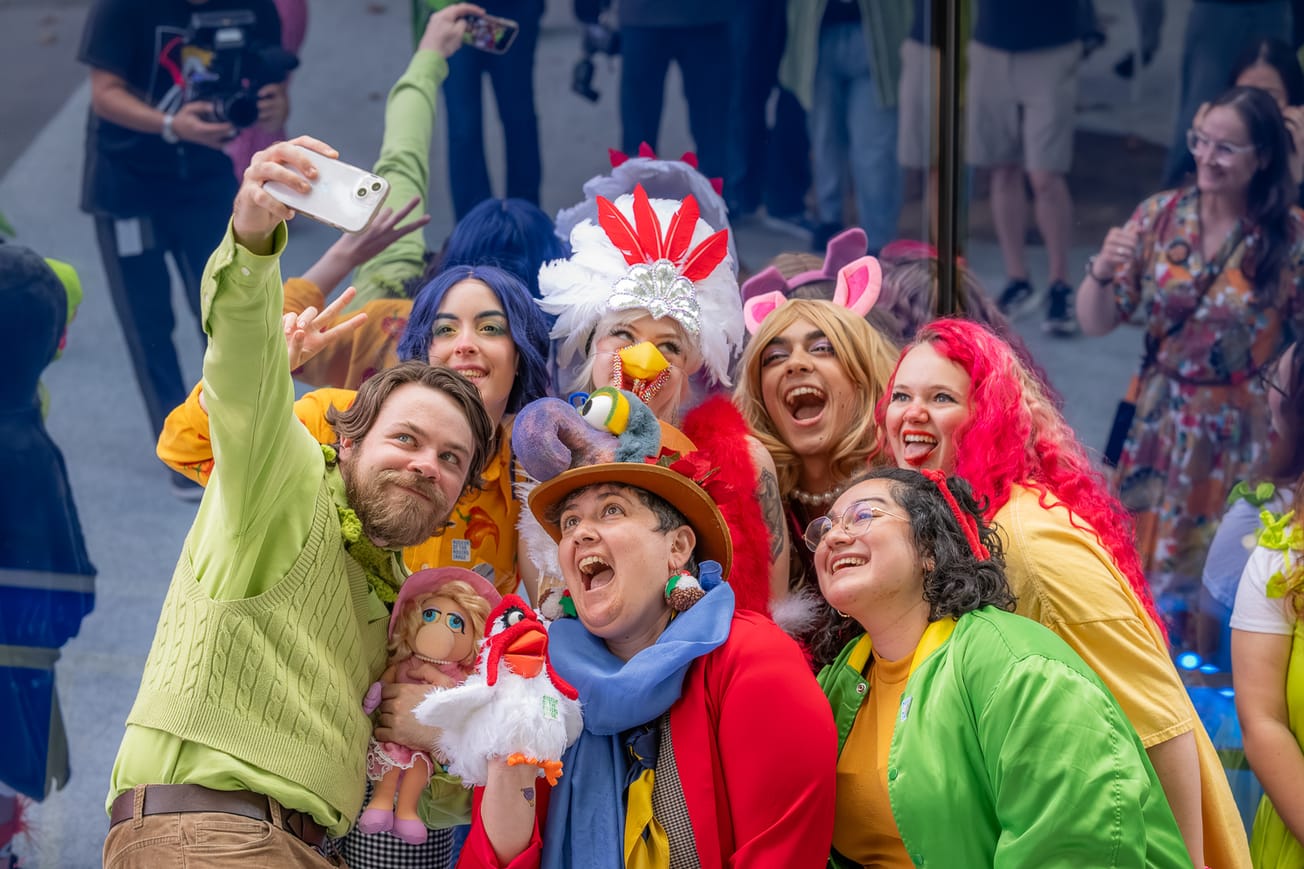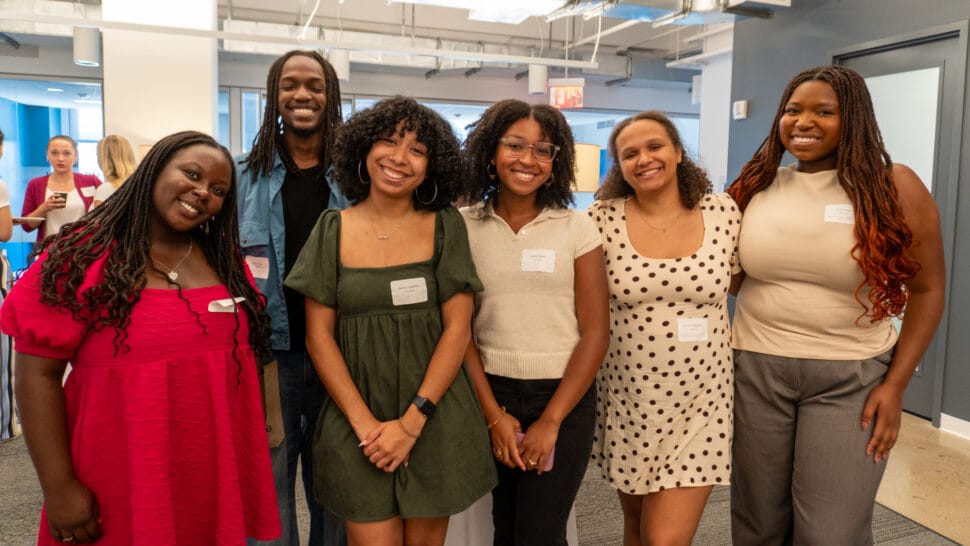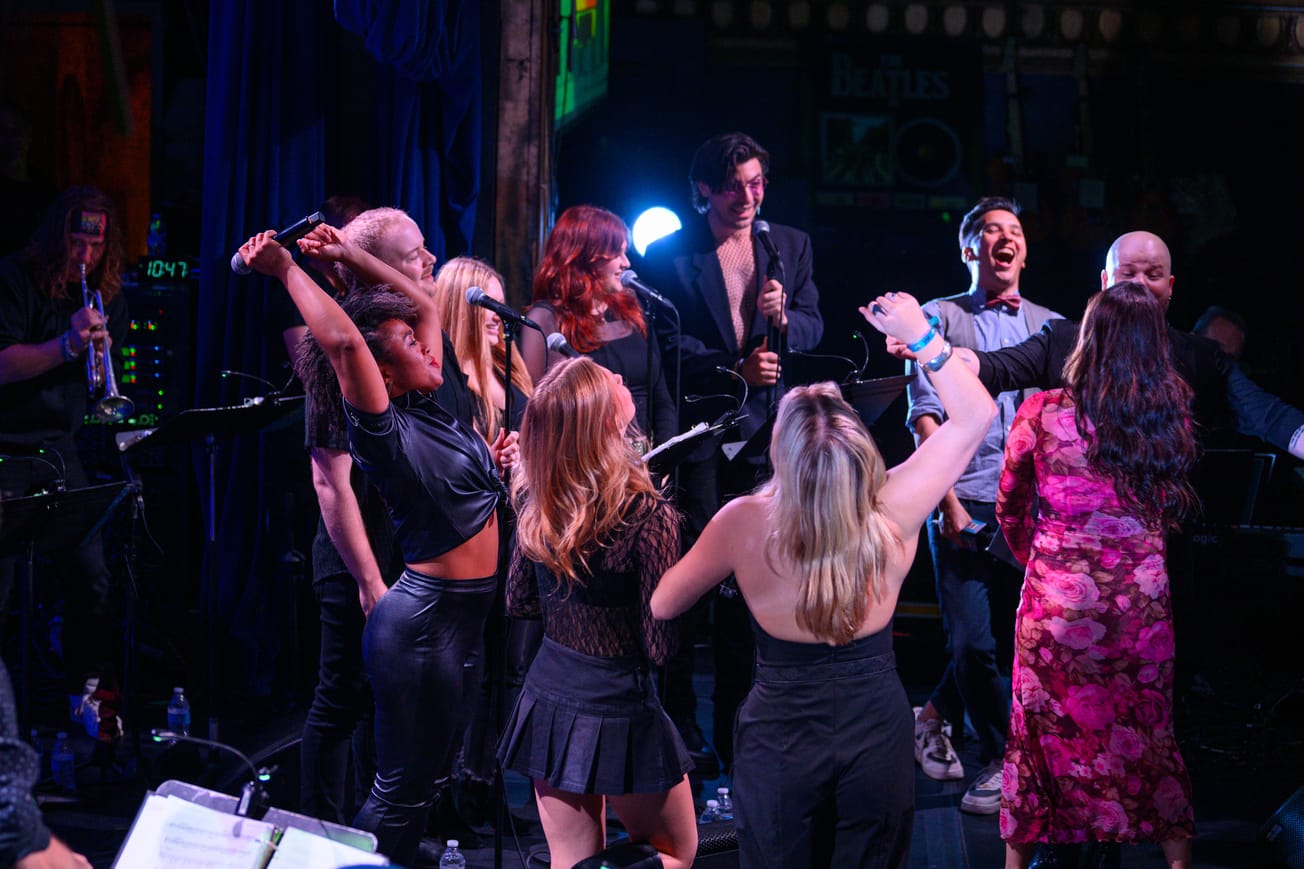Walk me through the programming at the core of Open Stage Project’s mission. What kind of opportunities do young women have access to?
Valerie Britten: Open Stage Project uses a 3-step approach to introduce high school girls and non-binary students to backstage careers in film, TV, and theater.
- Act One: An interactive seminar for New York City high school students to learn about backstage roles that they may not have previously known about.
- Act Two: A free after-school program for high school girls and nonbinary students that includes field trips to set, costume, and lighting shops, monthly skill-building workshops, one-on-one mentoring with film and Broadway professionals, free tickets to Broadway shows including an exclusive Q&A with female crew members, and more.
- Act Three: A custom summer fellowship opportunity in a Broadway or film office setting or working directly on a show or movie, including fully paid salary, reimbursed meals and transportation, and weekly professional development coaching. Whether the student wants to build sets, program lights, or work as a company manager, we activate our network to create opportunities for them to gain paid experience in the field.
The arts–and arts education specifically–took a huge hit due to COVID. What did the pandemic look like for Open Stage?
Open Stage Project lost no time during the pandemic, in fact by going fully remote, we reached more students than ever before. Open Stage Project was still in its infancy at the beginning of the pandemic and has grown as we have switched to more in-person programming.
In what ways have you seen your participants grow thanks to the opportunities they get at Open Stage? Can you share any stories that highlight the impact of the program?
We recently held our Act Two graduation party for this past year’s students. Several parents said that they were grateful for this program due to the lack of opportunities to learn about backstage work, but what struck me most was the feedback highlighting the role Open Stage Project played in their child’s personal development. They gained career development skills like resume building, writing a cold email to potential mentors, preparing LinkedIn profiles, presentation skills, and other transferable skills that will stay with their children no matter what field of work they end up in.

What’s a skill that you think students can learn backstage that they can’t learn anywhere else?
The teamwork skills required for backstage work are unparalleled. It is a rare mix of empathy, trust, knowledge of how things work, and confidence in your colleagues and your own abilities. Being able to trust and anticipate behavior and work together to achieve a common goal (often silently!) is a great skill.
What’s it like to see these young people succeed in an industry they’ve historically been excluded from?
It’s wonderful to see our students find backstage careers working on some of the top shows on Broadway and in film. In addition to our 3-step programming, we track all of the “connections” that are made through interaction with our organization. Backstage jobs are usually filled based on relationships and being at the right place at the right time, which has historically meant that women and non-binary people have been overlooked, so it is important for us to serve as their sponsors especially when they are not in the room.
Arts education is essential for all kinds of students, not just the ones who end up pursuing a career in the arts. How do the skills alum gain at Open Stage set them up for success in non-arts industries?
The arts are invaluable and there are many, many skills that can be learned through arts education. Our programming is heavily focused on career development. Our students learn how to navigate the workforce and how to interact with mentors or potential employers. These skills apply no matter what field they end up in. Many of our students learn practical skills through carpentry workshops and light programming. Our hope is that all of our students come out of our programs with a deeper understanding and appreciation of the arts as a whole, and even if they decide it is not the career for them, become advocates and patrons for life.
What’s one of the coolest or most unusual opportunities your participants have had access to?
Our students and fellows have had incredible opportunities to shadow backstage at high-profile events and shows. They have donned hard hats and visited scenic shops. They have even interacted with celebrities!
What’s the most rewarding part of Open Stage for you? Is there a particular moment or achievement that makes you smile?
I love helping our students and fellows find full-time paid backstage work after they graduate! That is the ultimate goal of the organization, and our programming only exists to support that mission. It is especially rewarding when our students take their careers into their own hands by proactively networking with our mentors and organizing their own opportunities.
And lastly, if there are any young women reading this who have aspirations of working backstage, what’s your advice to them on how to get started? What steps can they take to pursue their passion and find opportunities in the industry?
Network, network, network! Go out and meet people. This is a very closed-door industry, and the best way to find out about job opportunities is to start talking to people who are currently doing the work you want to be doing. Study Playbills and film credits and look for job titles that look interesting to you. Find companies and people that are doing that type of work through a Google search or on LinkedIn. You can also join our email list for a monthly list of backstage job openings by visiting openstageproject.org.






